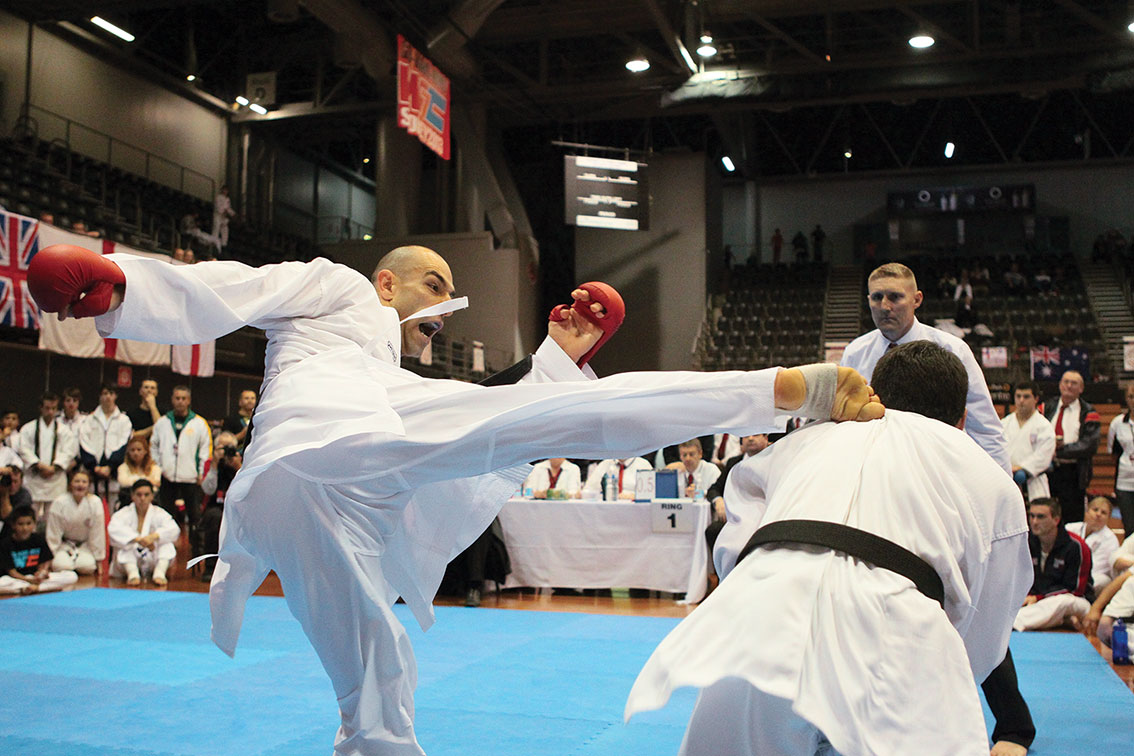Your Greatest Teacher

From the title of this article, you may be wondering who or what I am referring to when discussing your ‘greatest teacher’. Whilst I am confident that your personal sensei is someone who you can look up to and learn from, I believe that your greatest teacher is in fact – YOU!
Irrespective of your grade level, there is always much to learn and only a fool could ever claim to have ‘arrived’ at the finish line of karate learning or prowess. Your instructor can give you detailed feedback and regular technical corrections, but it is ultimately YOU who has to embrace and adopt these changes. In effect, your sensei can only give you knowledge – either by telling you or showing you how to perform a technique or kata in a more advanced way. The rest is up to you!
What I am saying is that you have more to do with your karate growth in the future than your sensei does. As an instructor myself, I have had the chance to train many people over the years. The students have pretty much all received the same insights and coaching, but not all have made it to black belt or beyond. Some progress more quickly than others. Some master difficult techniques or applications that others are still struggling with long after.
The politically correct reasoning behind this is that all people are ‘different’. They learn at different speeds and in different ways. This theory may have some truth, but I’m not sure that any of us who aspire to a high karate standard are helped by this built-in justification for slow progress. We all have physical characteristics that could be viewed as a retardant (eg: too short, too stocky, too thin, too old etc), but by far the most debilitating physical/mental characteristics are as follows:
1) Assumed limitations
Those who say they CAN and those who say they CAN’T are both right! Take note that other people can try and build ceilings over your head but only you can approve the construction! Become a no limits person – but be smart about it, ie: if you’ve started karate later in life, then look after your body before trying to copy the 21-year-old next to you. You have a greater awareness of your body than a younger person. Provided you look after it – it will serve you better than you think.
Question: Are you being held back by any pre-conceived limitations?
2.) Training without purpose – (just going through the motions)
Practice doesn’t make perfect – perfect practice makes perfect. Train in each class with mind and body. Push yourself physically. Feel your energy dropping, and then feel it returning. Be aware of how the techniques you’re performing could be used in real self-defence. Let your physical exertion empower you mentally. This will give you deeper reserves for life’s challenges.
Question: Are you training with a purpose or just going through the motions, then wondering why you aren’t progressing?
3) Lack of discipline
Contrary to conventional thinking, discipline usually precedes motivation. Put simply, if you live a disciplined life, you will be extremely motivated and self-empowered. Motivation alone can give you a buzz every now and then, and may even conjure up some positive activity, but without the discipline to back it up, it is never around long enough to give us sustained growth. Nowhere does this principle apply more than to our karate training. Whilst you may enjoy training in karate, there will be times when you just don’t feel like it. Some people wrongly hope that motivation will come and strike them into action. Instead, their ‘Do It Anyway’ reflex (ie: their self-discipline) needs to kick into gear and get them started. As Kancho would say, “The magic is in the first few punches,” meaning, once you get started, the blood flows, endorphins gush around your body, the sweat pours off you and you are in a peak physical state – and motivated to keep going! Self- discipline is the ‘starter-motor’ that generates all of your positive momenta.
Question: Are you living with self – discipline or wrongly waiting for motivation?
4) Lack of training goals
What are you working on right now? Is it your side-kick, your back leaning stance, your Sepai? If you’re not very specific about your training goals (eg: I just want to improve my karate… fluff, fluff, fluff… etc.), then you will not be giving yourself a goal to achieve. After all – how will you know if you’re improving if you have no system for measuring growth?
Question: What goals are you working towards right now?
These four training ‘hand-brakes’ can afflict any body type or shape, age or gender. As teachers ourselves, we need to embrace these principles in our own training so that we will always have the motivation towards our karate growth.



